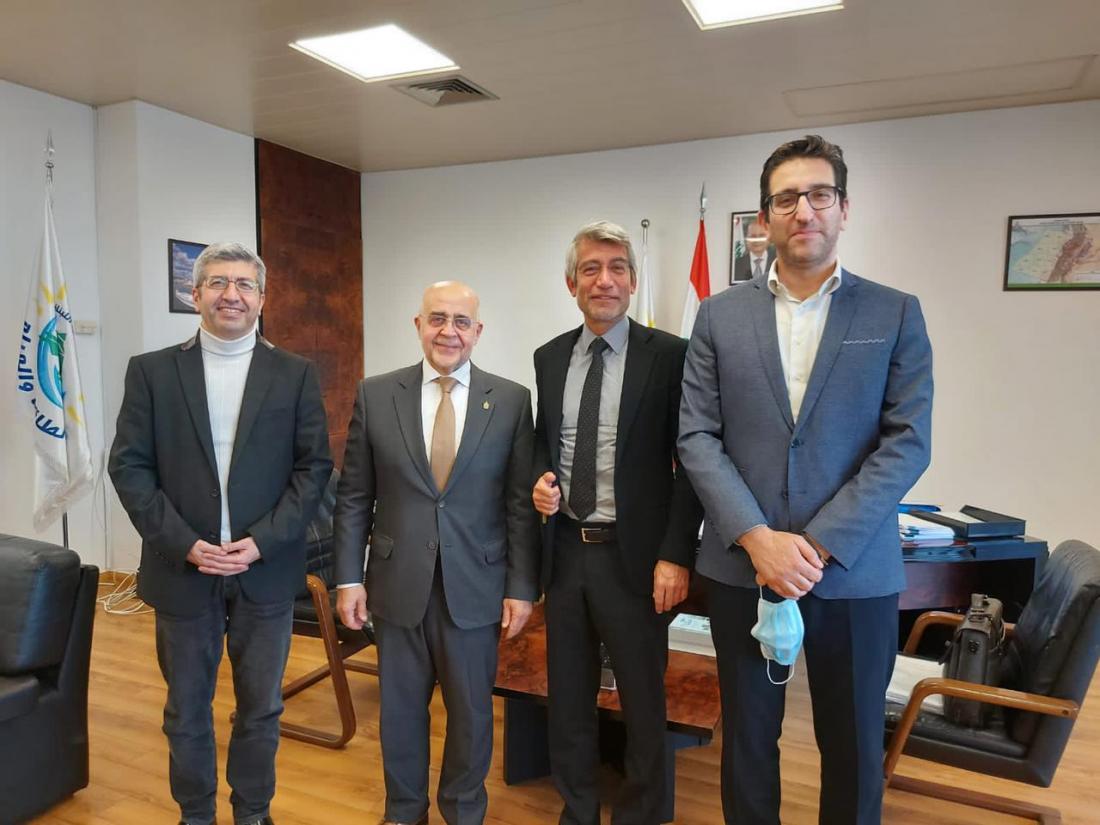The municipality of Tripoli (Lebanon) will develop a strategy based on BEEP project results to renovate their heritage buildings

In the presence of his Excellency the Minister of Energy, Dr. Walid Fayad, a memorandum of understanding (MoU) was signed between the Tripoli Municipality and the Lebanese Center for Energy Conservation within the framework of the BEEP project on the 8th March 2022.
The BEEP project aims at implementing “Building Information Modelling (BIM)” to enhance energy efficiency in buildings. The adoption of BIM is one of the greatest technological innovations in the construction industry to date. However, the implementation of BIM lags far behind its potential due to the existence of various barriers. Strong government support is critical for the successful development and deployment of complex technology systems.
For this reason, a Memorandum of Understanding (MoU) was signed between the BEEP project partners and the governments and local authorities of the 7 participating countries: Italy, Spain, Cyprus, Jordan, Palestine, Lebanon, and Egypt. The aim of this MoU is to set a common strategy for the use of BIM in refurbishment project, focusing on application of rules for requesting and monitoring BIM design process. Additionally, this MoU also aims to propose a framework to understand, challenge and extend the existing knowledge management for BIM adoption effectiveness within the limits of refurbishing complex building projects.
In Lebanon, the building of Rachid Karami Cultural Center (Nawfal Palace) and the Tripoli Municipality Building were selected as pilot buildings to test the proposed methodology within the framework of BEEP. The main results of the project revolve around the launch of an innovative methodology based on the integration of modern technologies used for heritage buildings, which contributes to launching sustainable rehabilitation processes. This methodology will provide public administrations with an effective method for energy rehabilitation of public buildings from analysis to financial plans, to be supported by private funds through contracting using energy performance contracts (EPCs).
About the BEEP project:
BEEP project aims at strengthening the use of Building Information Modelling (BIM) to enhance energy efficiency in buildings. The testing of this emerging technology on built heritage will be performed to demonstrate its scalability to the entire building stock. The project will provide public administrations with a powerful method for the energy rehabilitation of public buildings to be supported with private funds through the Energy Performance Contracting (*). The project main outcome will be an innovative methodology based on the integration of emerging technologies tested on 9 heritage public buildings located in Italy, Spain, Cyprus, Jordan, Palestine, Lebanon, and Egypt.
(*) Energy performance contracting (EPC) is a mechanism for organising the energy efficiency financing. The EPC involves an Energy Service Company (ESCO) which provides various services, such as finances and guaranteed energy savings. The remuneration of the ESCO depends on the achievement of the guaranteed savings. The ESCO stays involved in the measurement and verification process for the energy savings in the repayment period. ESCO and energy performance contracting are mostly found in the public sector and to a lesser extent in the industrial and commercial building sectors (Hilke and Ryan, 2012). Source: European Comission
Follow BEEP project: Web, Facebook, Twitter







